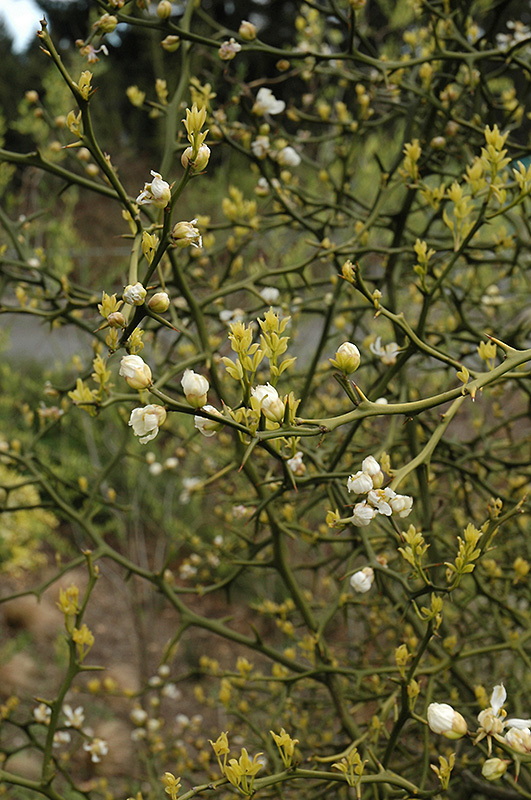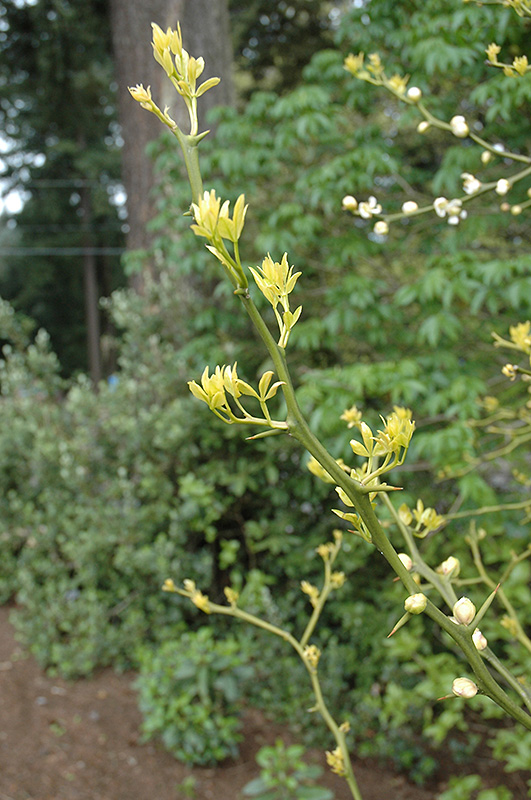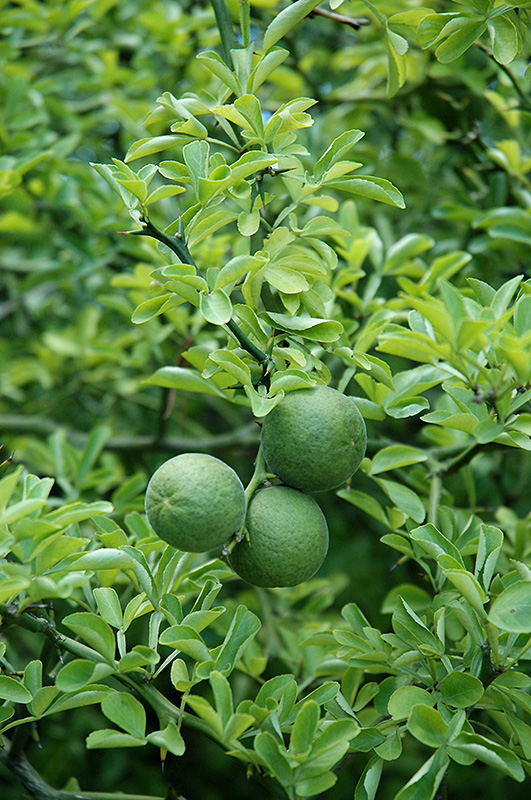Plant Finder
* This is a "special order" plant - contact store for details
Height: 20 feet
Spread: 15 feet
Sunlight:
![]()
Hardiness Zone: 5b
Other Names: Hardy Orange, Chinese Bitter Orange
Description:
This variety is a hardy deciduous citrus relative that makes an excellent border planting; very spiny, place away from walking areas; orange fruit adds tremendous interest all season; a wonderful accent tree or border planting; shelter in colder areas
Ornamental Features
Japanese Bitter Orange features showy clusters of lightly-scented white star-shaped flowers at the ends of the branches in early spring before the leaves. The fruits are showy orange pomes carried in abundance in mid summer. It has dark green deciduous foliage which emerges light green in spring. The glossy oval compound leaves turn gold in fall.
Landscape Attributes
Japanese Bitter Orange is a multi-stemmed deciduous tree with an upright spreading habit of growth. Its average texture blends into the landscape, but can be balanced by one or two finer or coarser trees or shrubs for an effective composition.
This is a relatively low maintenance tree, and is best pruned in late winter once the threat of extreme cold has passed. Deer don't particularly care for this plant and will usually leave it alone in favor of tastier treats. Gardeners should be aware of the following characteristic(s) that may warrant special consideration;
- Spiny
Japanese Bitter Orange is recommended for the following landscape applications;
- Accent
- General Garden Use
Planting & Growing
Japanese Bitter Orange will grow to be about 20 feet tall at maturity, with a spread of 15 feet. It has a low canopy with a typical clearance of 3 feet from the ground, and is suitable for planting under power lines. It grows at a medium rate, and under ideal conditions can be expected to live for 60 years or more.
This tree should only be grown in full sunlight. It does best in average to evenly moist conditions, but will not tolerate standing water. It is not particular as to soil type or pH. It is somewhat tolerant of urban pollution. This species is not originally from North America.
* This is a "special order" plant - contact store for details


